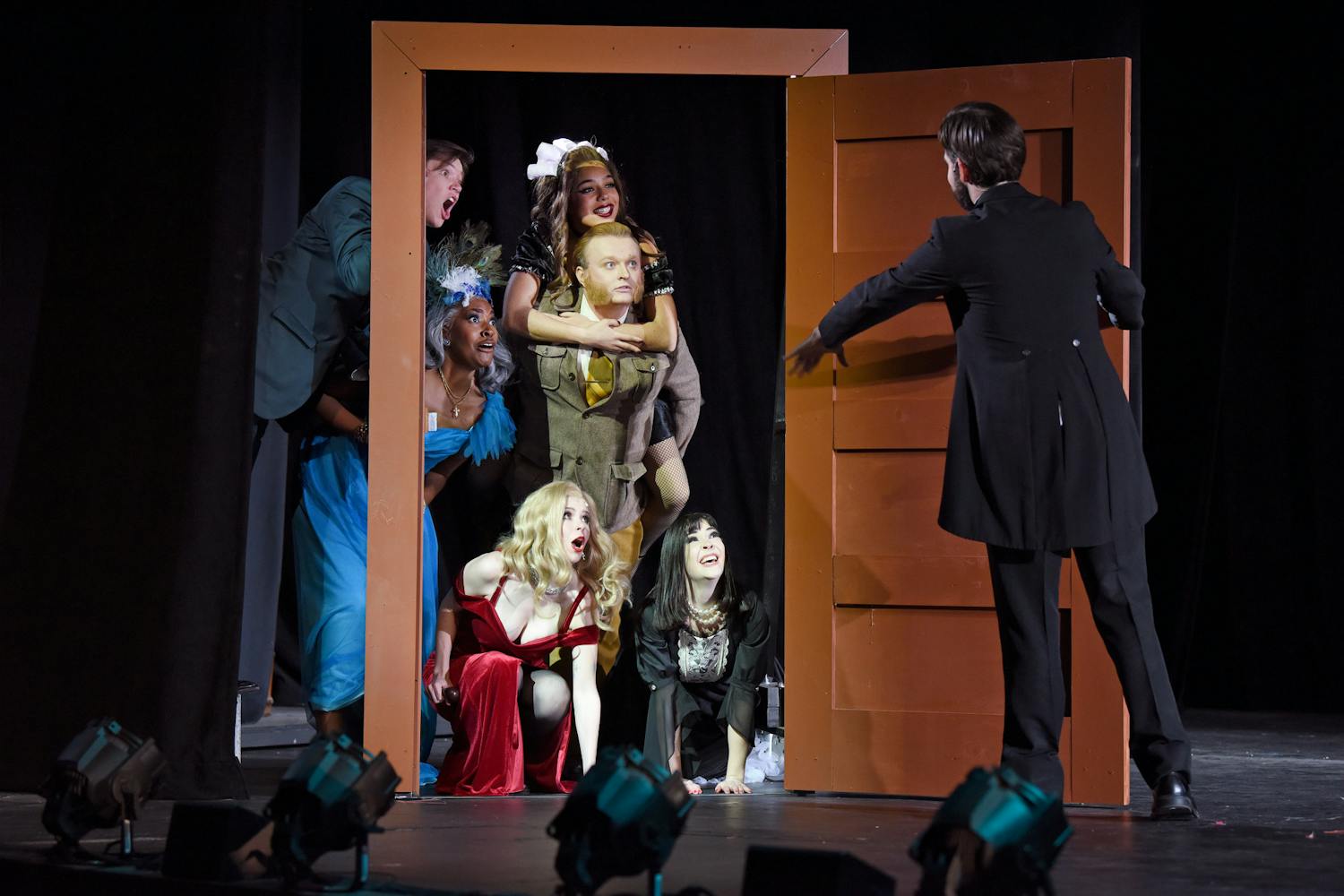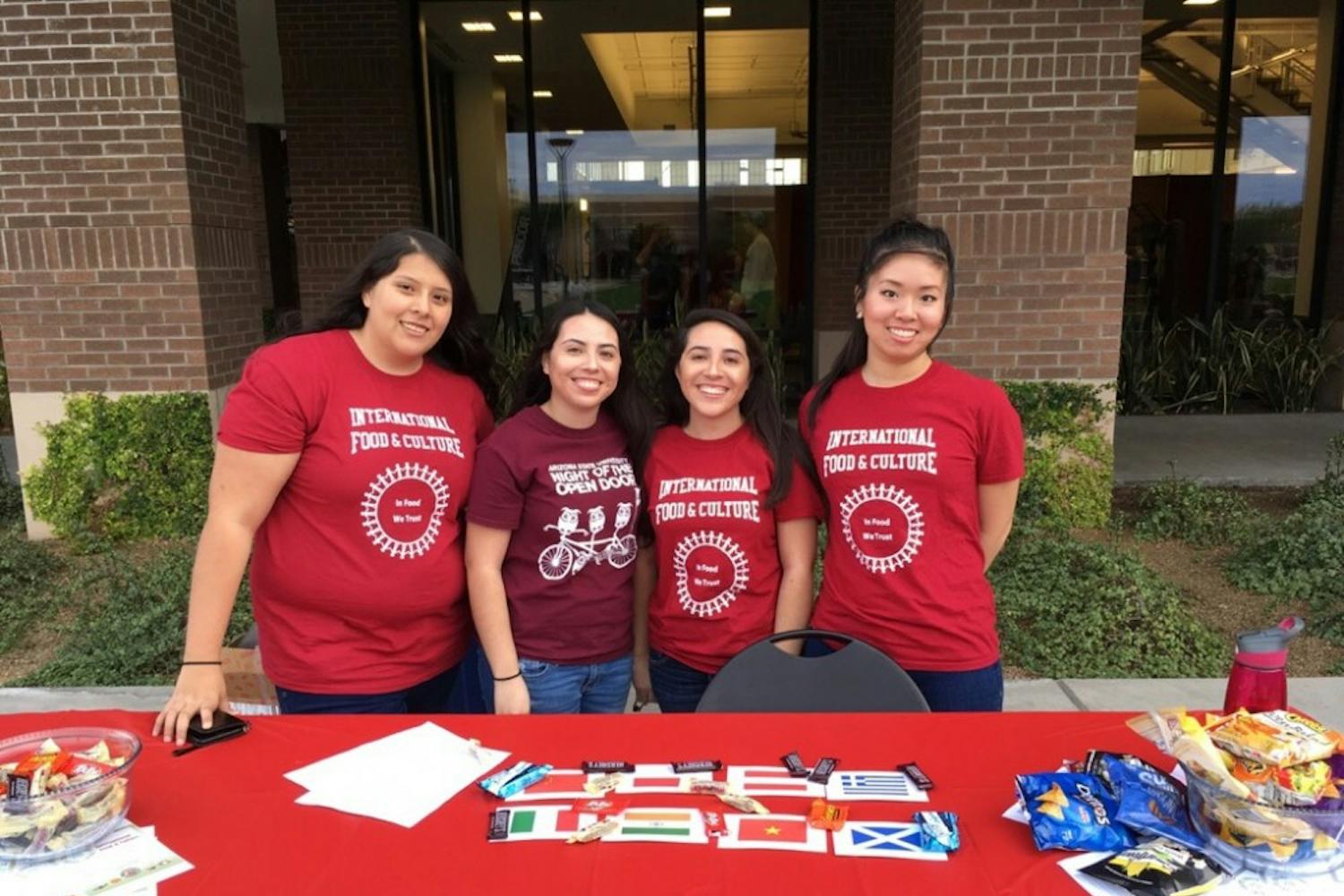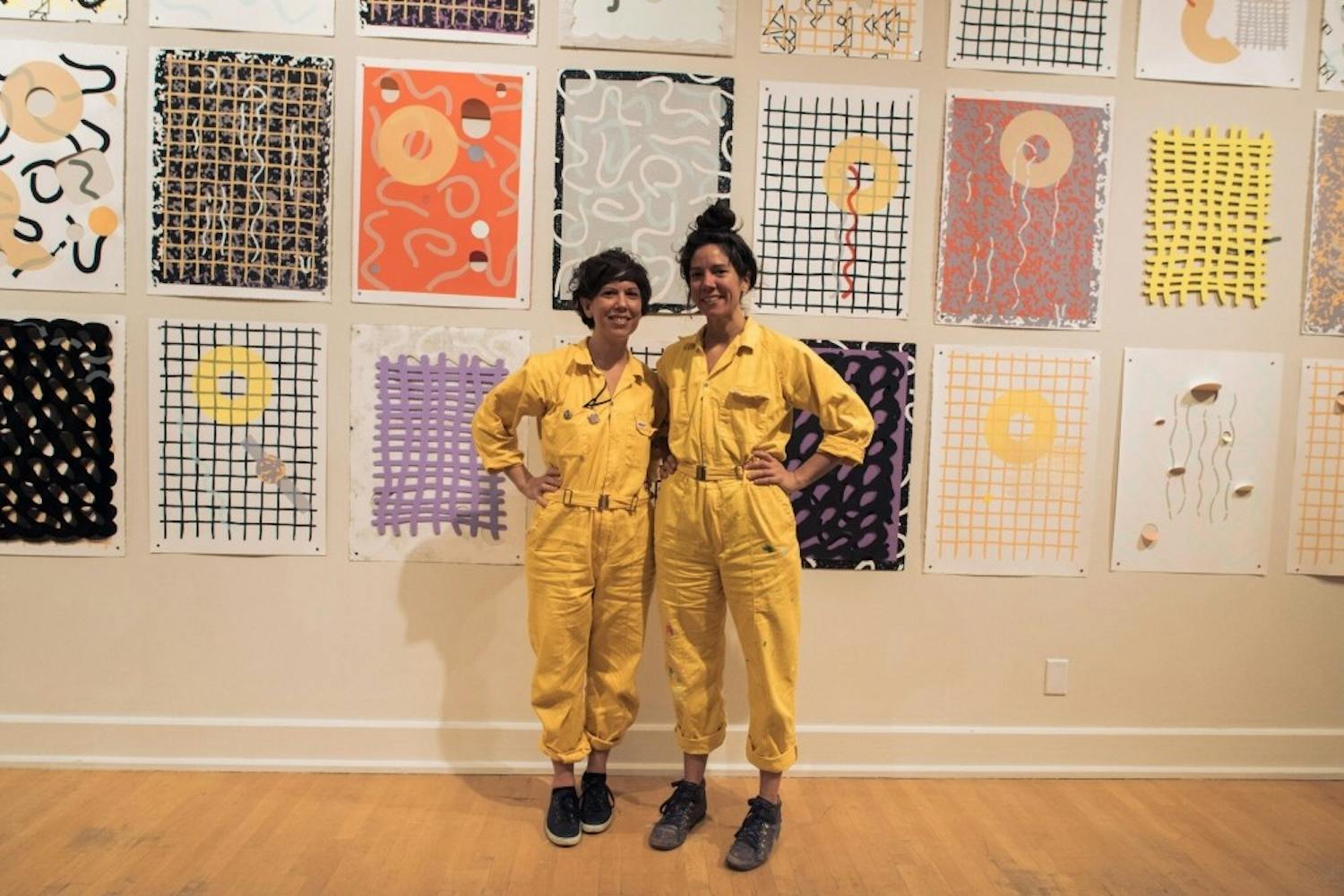Growing up in Croatia, 5-year-old Sime Kosta and his family were caught in the tumultuous wars of the early 1990s.
Now a music theatre freshman at ASU, Kosta chose to revisit his war memories — this time as part of a play aiming to raise awareness and benefit refugees in the Valley.
The Herberger College of the Arts’ presentation of Naomi Iizuka’s “Anon(ymous)” depicts the tale of a refugee’s struggles from an unspecified war-torn nation to America.
“My earliest memories are of war and running from it with my family,” Kosta said. “I remember running down the stairs with my mom to the basement, … adults listening to the radio, the sound of airplanes. I remember the joy when we heard that Croatia was liberated.”
Kosta plays the role of Anon, the main character. Kosta moved to the U.S. three years ago for education, opting to study musical theater at ASU instead of an opera academy in Vienna, Austria. He said he has worked for the past two and a half months to develop his relationship to the character, training physically and mentally to channel his own experience.
“It wasn’t hard to connect with the character,” he said. “I’m hoping the audience will be able to recognize that.”
Opening Friday and continuing through Dec. 7, “Anon(ymous)” juxtaposes centuries of Greek dramatic tradition with the plagues and issues of the modern world.
The play draws heavily from the ancient Greek play the “Odyssey,” beginning with the quasi-Odysseus character, Anon. Separated from his family in a warring country, Anon flees as a refugee to seek sanctuary in America. He encounters characters similar to Greek characters Calypso, the Cyclops, the Sirens and Penelope, which any fan of epic poetry will quickly identify.
Director Rachel Bowditch said she chose the play for its poetic style and provocative message.
Forced relocation, homeland, adopted country and cultural and personal identities play central roles in the underlying message and theme. Iizuka deliberately choose to leave the play’s location and Anon’s nationality ambiguous to make the message universal, Bowditch said.
Bowditch knew she wanted to direct the play as far back as last January but didn’t start until August.
Since then, she has spent seven weeks preparing the actors and 10 weeks working with set designers and multimedia experts. She researched statistics on refugees around the world and strived to find the “visual essence” of the show.
“It’s a heavily multimedia show,” she said. “And the first week of rehearsal was just going through movements. All the physical training helps [the actors] prepare for their characters.”
Bowditch said she placed particular emphasis on physical training as a means of understating the actor’s characters. She is a certified teacher of RasaBoxes, emotional training techniques adapted from an ancient Sanskrit manual. Actors must move through nine boxes drawn on the floor, each one encapsulating a different emotion.
Bowditch also points out parallels between the multicultural makeup of the actors and the message. Members of the cast and production team encompass seven nationalities and seven languages from Croatia, Malawi, South Africa, Mexico, Hungary, South Korea, Germany and the Philippines.
“It’s a very international group, which relates well to the play because it’s all about coming from somewhere else,” she said. “Throughout the play there are various metaphors for integration and identity.”
As part of their mission to benefit local refugees, the School of Theatre and Film partnered with the organization Community Outreach & Advocacy for Refugees.
Through the partnership, refugees and their families are invited to a free showing of the play on Sunday with a post-show potluck and discussion. COAR executives will also give talks following the show on Dec. 5 and 7. Except for opening night, a discussion will follow every show.
Anne Negri, a theater graduate student and part of the education and community outreach team for “Anon(ymous),” said COAR’s local roots in Tempe and service to refugees made them the best candidate for the partnership.
“We did a basic search of refugee organizations in the Tempe area,” she said. “We thought going local would be the best option.”
Reach the reporter at channing.turner@asu.edu.



